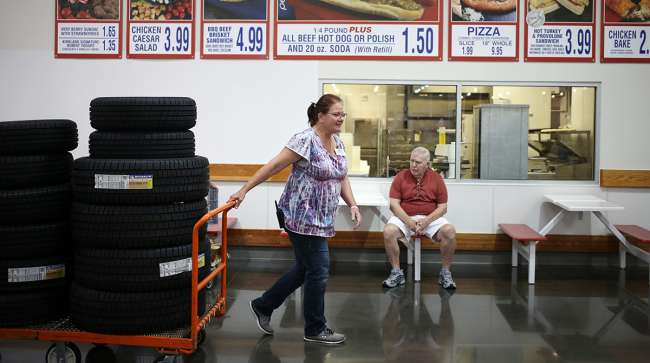Consumer Confidence Increased More Than Forecast in January

U.S. consumer confidence was stronger than expected in January and hovering near a 17-year high as households grew somewhat more upbeat about employment and the economy, according to figures out Jan. 30 from the Conference Board in New York.
Highlights of Consumer Confidence for January
• Confidence index rose to 125.4 (estimated 123) from an upwardly revised 123.1 in December.
• Present conditions measure decreased to 155.3 from 156.5.
• Consumer expectations gauge increased to 105.5 from 100.8.
Key Takeaways
An unemployment rate hovering near a 17-year low, modest inflation that’s propping up purchasing power, sturdy economic growth and elevated stocks are keeping people optimistic. An upbeat consumer will probably help underpin household spending, which advanced in the fourth quarter at the fastest pace since the three months ended June 2016.
The share of respondents who expected better business conditions and more jobs in the next six months improved slightly this month. While some companies have been raising wages and doling out bonuses after tax-cut legislation was signed into law late last year, the Conference Board said Americans were uncertain how the effects would impact their finances.
Economist Views
“Expectations improved, though consumers were somewhat ambivalent about their income prospects over the coming months, perhaps the result of some uncertainty regarding the impact of the tax plan,” Lynn Franco, director of economic indicators at the Conference Board, said in the statement. “Consumers remain quite confident that the solid pace of growth seen in late 2017 will continue into 2018.”
Other Details
• 22% of consumers said they expect better business conditions in next six months, up from 21.6% in December.
• Share of households who expect incomes to rise in next six months declined to 20.4% from 22.7%.
• Share of those who said more jobs will be available in coming months improved to 19% from 18.9%.
• Share saying jobs are currently plentiful climbed to 37.6% from 36.3%; though 16.4% said they were hard to get, up from 16%.
• Buying plans were mixed, with more indicating they expected to buy new cars and fewer anticipating purchases of homes and appliances.
• Share expecting stock prices will increase in coming year rose to 51.6%, the highest in records to 1987.




